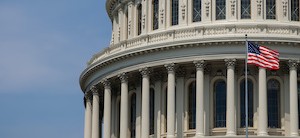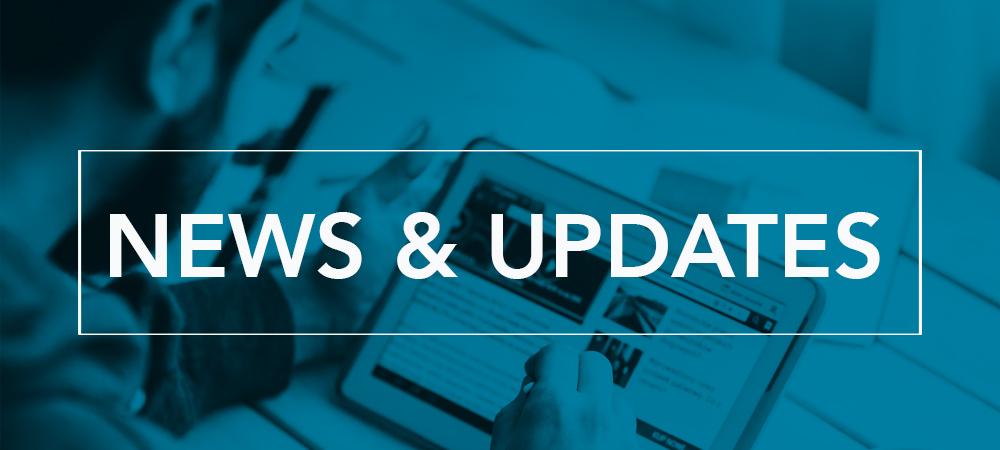House Passes WRDA 2020, Conference with Senate Pending
 The House passed the Water Resources Development Act (WRDA) of 2020 (H.R. 7575) by voice vote. Upon the bill’s passage, the Trump Administration issued a statement supporting many of the bill’s provisions but expressing concerns over certain U.S. Army Corps of Engineers inland waterways and levees infrastructure provisions within the bill. The Administration stated that it “remains committed to working with Congress to improve [the] legislation.” The House is now waiting for the Senate to debate and pass its America’s Water Infrastructure Act (AWIA) 2020 (S. 3591) to begin conference committee negotiations to reach a final compromise bill. S. 3591 was reported out of the Senate Committee on Environment and Public Works, on a bipartisan basis in May, and currently awaits debate and a vote on the Senate floor.
The House passed the Water Resources Development Act (WRDA) of 2020 (H.R. 7575) by voice vote. Upon the bill’s passage, the Trump Administration issued a statement supporting many of the bill’s provisions but expressing concerns over certain U.S. Army Corps of Engineers inland waterways and levees infrastructure provisions within the bill. The Administration stated that it “remains committed to working with Congress to improve [the] legislation.” The House is now waiting for the Senate to debate and pass its America’s Water Infrastructure Act (AWIA) 2020 (S. 3591) to begin conference committee negotiations to reach a final compromise bill. S. 3591 was reported out of the Senate Committee on Environment and Public Works, on a bipartisan basis in May, and currently awaits debate and a vote on the Senate floor.
H.R. 7575 authorizes studies and construction of water resources development projects in consultation with the Army Corps, including the construction of all 34 pending Chief’s Reports since 2018, 35 feasibility studies for water resources development projects, and expedites completion of 41 feasibility studies currently under review at the Corps. This year’s WRDA includes a heightened focus on addressing and prioritizing the water resources needs of economically disadvantaged communities. A section-by-section summary can be accessed here.
Along party-line votes, the House passed ten of the total twelve fiscal year (FY) 2021 spending bills. This includes appropriations for the U.S. Environmental Protection Agency (H.R. 7608) and the U.S. Bureau of Reclamation and U.S. Army Corps of Engineers (H.R. 7617). H.R. 7608 funds USEPA at $9.38 billion, which is an increase of $318 million above the FY 2020 enacted level. A summary of the appropriations for the Agency can be reviewed here. When considering H.R. 7608, the House adopted an amendment offered by Representative Jackie Speier (D-CA) that addresses the Interior-Environment bill’s Water Infrastructure Finance and Innovation Act (WIFIA) program funding rescission language contained in the spending bill that would use unobligated WIFIA funds from fiscal years 2017, 2018, and 2019 to support the program in FY2021.Speier’s amendment protects WIFIA project applicants that have been invited by the U.S. Environmental Protection Agency for funding in fiscal years 2018 and 2019 from having to start the application process over again in FY2021 because of the new rules established by the Interior-Environment bill. The WIFIA rescission language may ultimately be removed from the bill entirely when the Senate and House go to conference later this year.Upon considering H.R. 7617, the House did not adopt amendments of major concern for the clean water sector. A summary of the bill’s allocations for the departments water infrastructure programs can be found here.The U.S. Bureau of Reclamation’s water infrastructure programs provide critical support to western water resources supply and security activities, such as drought resiliency and water recycling. It funds the Bureau at $1.6 billion, of which $1.5 bill is for its Water and Related Resources activities.
Congress has until September 30 to pass FY2021 spending bills before the new fiscal year begins. If the House and Senate are unable to meet that deadline, which appears likely, a continuing resolution to fund the government at FY2020 enacted levels will be necessary until agreement is reached on FY2021 appropriations.
Senate Unveils COVID-19 Relief Package
 Senate Republicans have unveiled their much-anticipated coronavirus relief legislative proposal. The Senate proposal would deliver nearly $1 trillion in COVID-19 assistance, and provide federal agencies with $306 billion in supplemental appropriations to respond to impacts from the public health crisis. The package is the Senate’s counter proposal to House Democrats’ $3 trillion aid package, the HEROES Act (H.R. 6800), which passed the chamber last month.
Senate Republicans have unveiled their much-anticipated coronavirus relief legislative proposal. The Senate proposal would deliver nearly $1 trillion in COVID-19 assistance, and provide federal agencies with $306 billion in supplemental appropriations to respond to impacts from the public health crisis. The package is the Senate’s counter proposal to House Democrats’ $3 trillion aid package, the HEROES Act (H.R. 6800), which passed the chamber last month.
The Senate proposal focuses on direct relief for tax payers and unemployment benefits. The Senate proposal does not extend relief financial aid to special districts, nor does it include ratepayer assistance funding to support low-income ratepayers and the water utilities serving the ratepayers that was included in H.R. 6800. However, negotiations around ratepayer assistance can be expected to take place as the Senate considers the package and eventually goes to conference with the House to pass a compromise relief package.
Senators must now debate and pass the legislation on the floor. The House and Senate will then enter into conference committee negotiations to reach a compromise relief package. Congress is under pressure to pass a relief package before the House and Senate leave for the month-long August recess.




 @CASA_CleanWater
@CASA_CleanWater